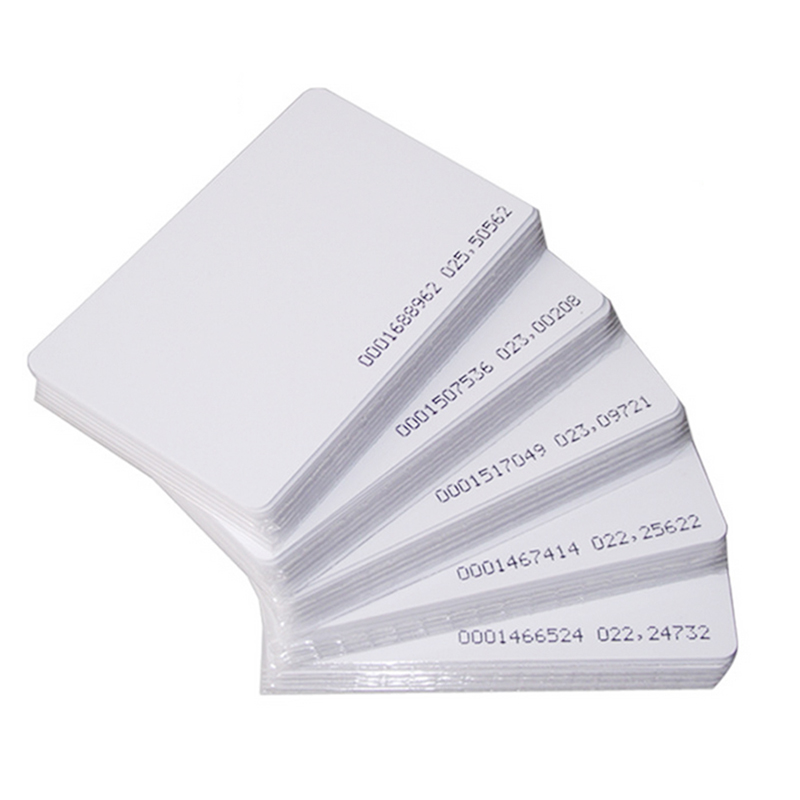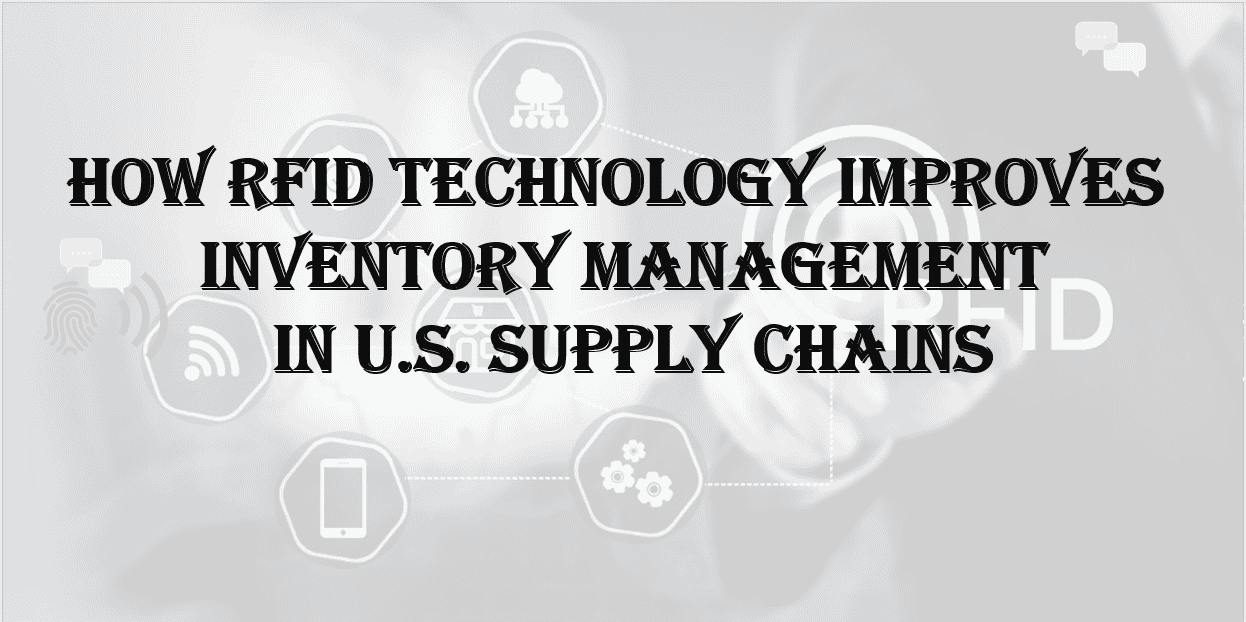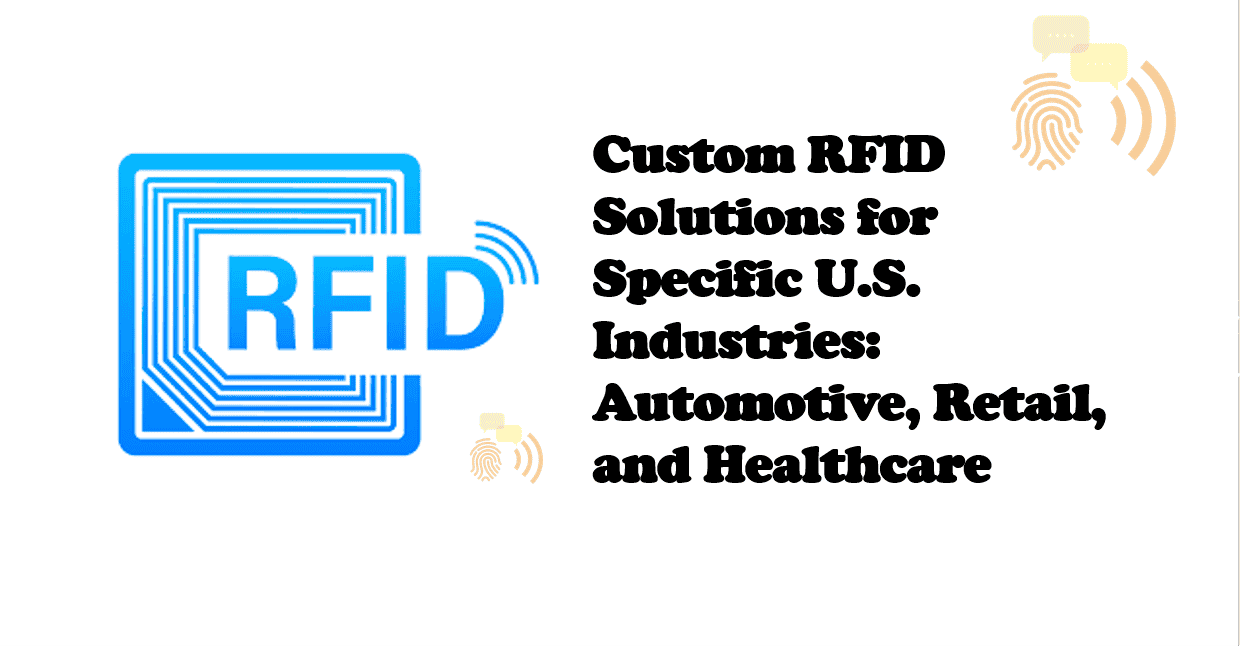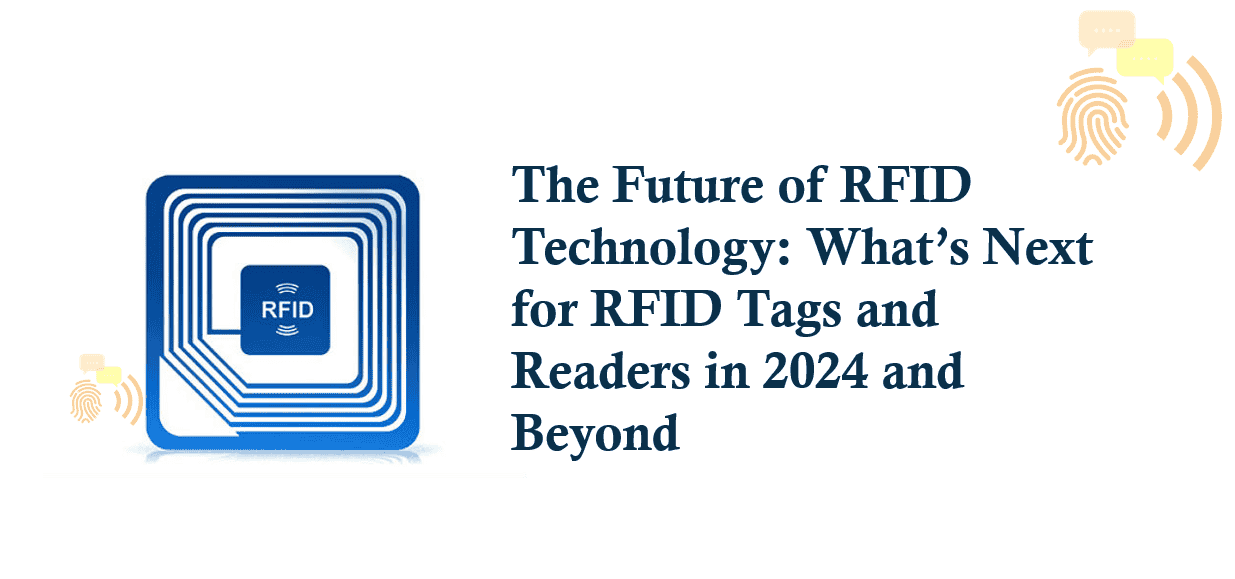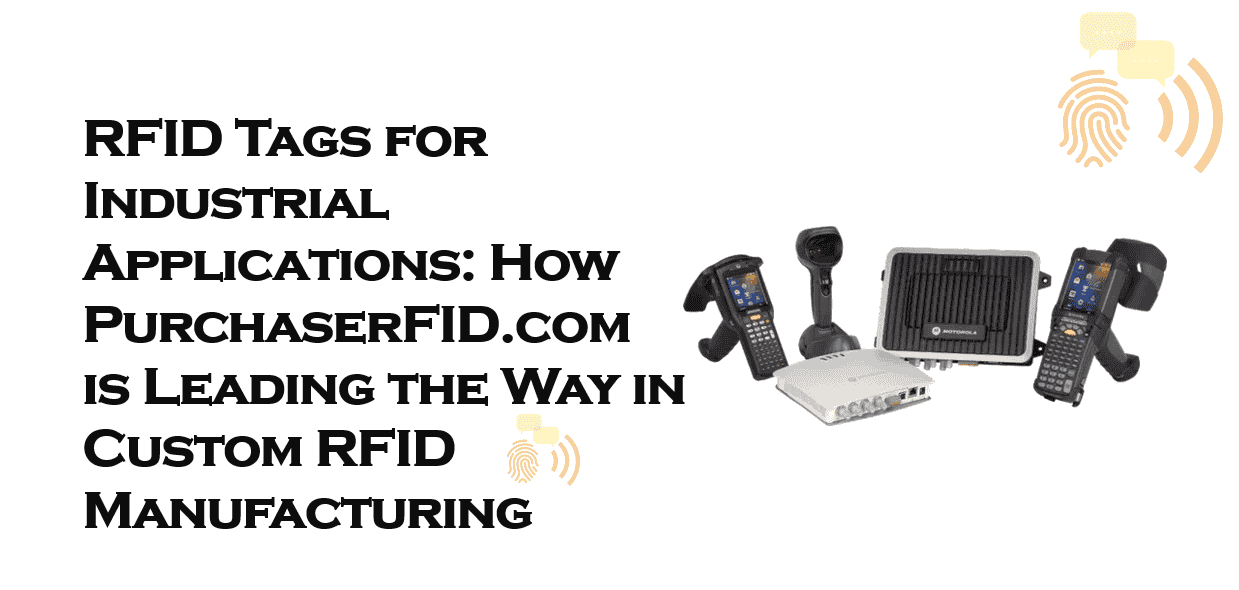Full-Spectrum RFID Solutions for Retail and Inventory Management
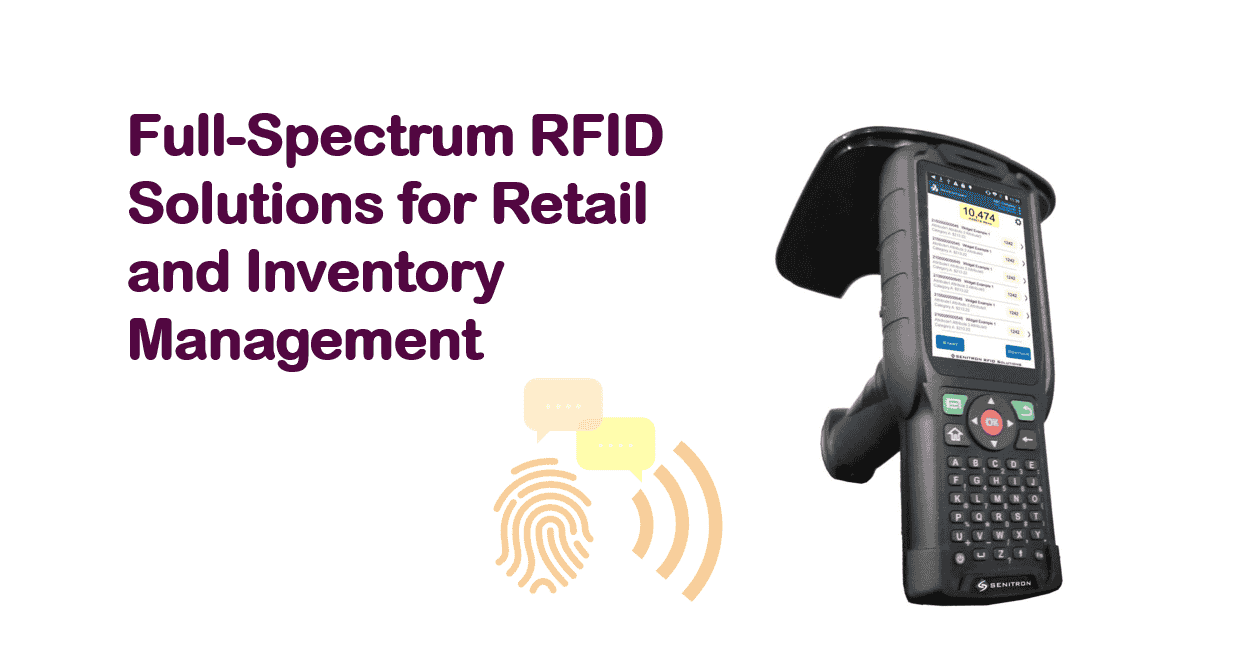
Full-Spectrum RFID Solutions for Retail and Inventory Management
In today’s fast-paced retail environment, businesses are constantly looking for innovative solutions to enhance efficiency, improve customer experience, and streamline operations. One such game-changing technology is Radio Frequency Identification (RFID). With the growing demand for accurate and real-time tracking of inventory, RFID retail solutions have become essential in optimizing retail operations. Full-spectrum RFID solutions for retail and inventory management are revolutionizing how businesses handle stock, monitor product movements, and deliver exceptional customer service.
Table of Contents
- Introduction
- What is RFID and Why is it Crucial for Retail?
- The Benefits of RFID Retail Solutions
- Implementing RFID for Retail
- The Future of RFID in Retail
- Conclusion
What is RFID and Why is it Crucial for Retail?
Radio Frequency Identification (RFID) is a wireless communication technology that uses electromagnetic fields to automatically identify and track tags attached to objects. In the context of retail, RFID tags are attached to products and communicate with RFID readers, providing real-time data on product locations, quantities, and movements.
RFID retail solutions offer significant advantages over traditional barcode systems, such as faster scanning, greater range, and the ability to read multiple items simultaneously. As a result, RFID for retail provides businesses with a more efficient and accurate method for managing inventory, improving supply chain processes, and enhancing the overall customer shopping experience.
The Benefits of RFID Retail Solutions
-
Improved Inventory Accuracy
One of the most significant benefits of inventory management with RFID is improved inventory accuracy. Traditional inventory management systems, such as barcodes, rely on manual scanning and can be prone to errors. With RFID, products are automatically tracked as they move through the supply chain, ensuring that real-time data is updated without human intervention. This reduces the risk of stockouts, overstocking, and misplacement, helping retailers maintain optimal inventory levels.
-
Faster Inventory Replenishment
RFID allows retailers to perform inventory checks in real-time and more efficiently than with barcode scanning. Retailers can conduct full inventory counts in a fraction of the time it takes using traditional methods. This reduces labor costs and ensures that stock levels are updated quickly, enabling faster inventory replenishment. As a result, retailers can avoid lost sales due to stockouts and maintain better control over their inventory.
-
Enhanced Customer Experience
RFID for retail isn’t just about backend operations; it also enhances the customer shopping experience. RFID-enabled systems can speed up checkout times by allowing for quicker product scans. Additionally, by maintaining accurate inventory data, retailers can ensure that customers can always find the items they need, whether in-store or online. This helps reduce frustration and increases customer satisfaction, which is crucial for brand loyalty.
-
Real-Time Data and Analytics
Full-spectrum RFID solutions for retail provide retailers with valuable data insights in real-time. By analyzing RFID data, businesses can track trends, monitor sales patterns, and predict future demand more accurately. This enables retailers to optimize inventory levels, improve stock placement, and identify underperforming products. The ability to act on real-time data not only increases operational efficiency but also allows businesses to make informed decisions and stay ahead of market trends.
-
Streamlined Supply Chain Management
RFID technology also plays a critical role in enhancing supply chain management. With full-spectrum RFID solutions, retailers gain visibility into the entire supply chain process, from the manufacturer to the store shelf. This transparency allows for better coordination with suppliers and ensures that products arrive on time. Additionally, RFID helps reduce theft and shrinkage, which are common issues in retail environments.
-
Reduced Operational Costs
By automating inventory management and reducing the need for manual stock counts, RFID helps retailers lower operational costs. RFID systems can also help reduce losses due to inaccurate stock levels, ultimately saving businesses money. RFID solutions contribute to long-term cost reductions by improving stock accuracy, reducing shrinkage, and enhancing supply chain efficiency.
Implementing RFID for Retail
Integrating RFID into retail operations may seem daunting, but with the right strategy, the benefits far outweigh the initial challenges. Here’s a step-by-step guide to successfully implementing RFID retail solutions:
-
Choose the Right RFID Tags and Readers
The first step in implementing RFID for retail is selecting the right RFID tags and readers for your business. RFID tags come in different types—passive, active, and semi-passive—each with its own set of advantages. Passive tags are the most commonly used in retail due to their cost-effectiveness. RFID readers come in various styles, including handheld devices for stock-taking and fixed readers for monitoring product movements.
-
Integrate RFID with Existing Systems
For RFID to work effectively, it must be integrated with your existing inventory management and point-of-sale systems. This integration ensures that RFID data is captured and used to update inventory records in real time. Most modern retail management systems are compatible with RFID technology, making integration smoother.
-
Train Staff and Optimize Processes
It’s essential to train employees on how to use RFID devices and understand the benefits of the technology. Proper training will ensure that staff members are equipped to handle the system effectively and can address any issues that may arise. Additionally, optimize your inventory processes to fully leverage the capabilities of RFID.
-
Monitor and Analyze Data
RFID solutions provide valuable data on inventory movements, sales trends, and supply chain performance. Retailers should regularly monitor this data and use it to make informed decisions on restocking, promotions, and product placement. Continuous data analysis can uncover opportunities for cost savings and increased efficiency.
The Future of RFID in Retail
The future of RFID in retail is promising, with technology evolving to support even greater automation and efficiency. Innovations such as smart shelves, RFID-enabled self-checkout systems, and integration with AI and machine learning for predictive analytics will take RFID retail solutions to the next level. As RFID technology continues to advance, retailers that adopt these solutions will enjoy a competitive edge in the marketplace.
Conclusion
Full-spectrum RFID solutions for retail and inventory management are transforming the way retailers operate. With enhanced inventory accuracy, faster replenishment cycles, improved customer experiences, and the ability to make data-driven decisions, RFID for retail is a must-have technology for modern retailers. By leveraging RFID retail solutions, businesses can optimize operations, reduce costs, and stay competitive in an increasingly digital world. As the retail landscape continues to evolve, RFID will remain a cornerstone of effective inventory management and customer satisfaction.
Related Products
Here are some relevant statistics and facts that can enhance the article on full-spectrum RFID solutions for retail and inventory management:
1. Increased Inventory Accuracy
- 96% of retailers who use RFID report an improvement in inventory accuracy, with some achieving 99%+ accuracy levels .
- A study by the Aberdeen Group found that retailers using RFID experienced 25% higher inventory accuracy compared to those relying on traditional barcode systems .
2. Faster Inventory Replenishment
- RFID-enabled systems allow for inventory counts to be completed up to 70% faster than manual counts or barcode scanning .
- Retailers have seen a 50% reduction in stock-outs by using RFID technology, as it helps to identify product shortages quickly and reorder items in real-time .
3. Enhanced Customer Experience
- 90% of retailers report that RFID improves customer satisfaction by ensuring accurate product availability .
- RFID-powered self-checkout systems are estimated to reduce checkout time by up to 30%, improving customer flow and reducing wait times .
4. Real-Time Data and Analytics
- Real-time RFID data allows retailers to make better stocking decisions, leading to an average 30% reduction in inventory carrying costs .
- Retailers using RFID can gain insights into customer behavior and trends, leading to 5-10% improved sales performance through optimized product offerings .
5. Streamlined Supply Chain Management
- RFID solutions help reduce supply chain errors, with RFID-based tracking reducing the risk of lost or misplaced shipments by 80% .
- 25% of retailers report that RFID technology significantly improved visibility throughout their entire supply chain, from the manufacturer to the shelf .
6. Reduced Operational Costs
- RFID technology has been shown to reduce labor costs for inventory management by 30-50% due to the automation of tracking and scanning .
- Retailers utilizing RFID can reduce losses from theft and shrinkage by as much as 30-50% .

